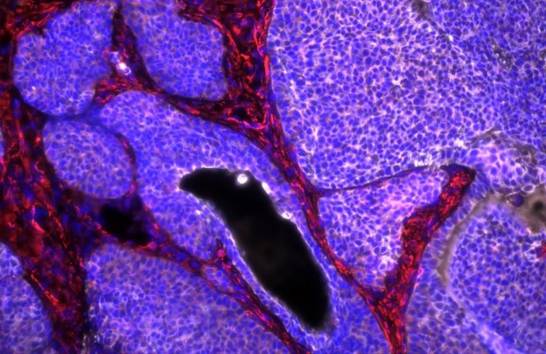Researchers at the Cancer Research Center (CIC), a joint center of CSIC and the University of Salamanca, have designed a nanoparticle-based drug that has demonstrated its effectiveness in treating and monitoring cancer immunotherapy. The study, published in Nanobiotechnology Magazinecharacterized and evaluated in vitro and to live the application of some nanoparticles that specifically identify and attack only those tumor cell.
We evaluated some nanoparticles that present both an antitumor drug derived from cisplatin and a molecule that allows the monitoring and traceability of the nanoparticle in biological systems
“We evaluated some nanoparticles that have both a antitumor drug derived from cisplatin as a molecule that allows the monitoring and traceability of the nanoparticle in biological systems”, explains Manuel FuentesCIC researcher.
Fuentes’ team analyzed what happens from the moment the nanoparticle is administered until it acts in the area of the tumor. The characterization and evaluation of its applications open the way for the design of new antitumor drugs with application in immunotherapy.
One of the functions of the immune system is to identify cancer cells in the body and eliminate them. If all the cancer cells are gone, the cancer will go with them. However, sometimes cancer cells develop mechanisms so that the immune system does not locate them and therefore are not eliminated from the body by the immune response.
A very promising area in cancer research, including hematological tumors, is immunotherapy, where research is being carried out on how to prevent tumor cells from hiding from the immune system. Knowing these response mechanisms, new drugs can be developed that improve the function of identifying and eliminating cancer cells.
“To achieve this objective of identification and elimination, when cancer cells go unnoticed in the body, the immune system must be manipulated to recover this function, and it is within this framework that we are working”, says the researcher.
Nanomedicine for personalized treatment
Nanomedicine is a specialty of biomedicine that can provide more efficient solutions and the design of new drugs. Nanomedicine works by combining nanoparticles that make it possible to manipulate the immune response, acting specifically on cancer cells and not healthy cells.
Thus, it allows the development of personalized and precision medicine, for only act on cells that need to be killed, avoiding many of the side effects of chemotherapy. Another advantage of nanoparticles is that they detect cancer cells and transport the drug to the tumor; further facilitating entry into the tumor cell to improve its efficiency and reduce toxicity in the area of tissue damage.
In the research of nanoparticles, their interaction with their biological environment must be analyzed, because depending on this relationship of the nanoparticle with the biomolecules that surround it, it will determine the efficiency of the drug, as it influences the absorption, distribution and mechanisms of entry into the cell, as well as in interaction with the immune system. This relationship can change across species and therefore determine the evolution of preclinical and clinical trials.
Reference:
Hernández, AP, Micaelo, A., Piñol, R., García-Vaquero, ML, Aramayona, JJ, Creator, JJ, Fuentes, M. (2022). “Comprehensive and systematic characterization of multifunctional cisplatin nanoconjugate: from chemistry and biocompatibility to animal model”. Nanobiotechnology Magazine (2022)
